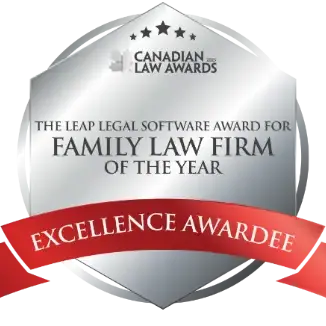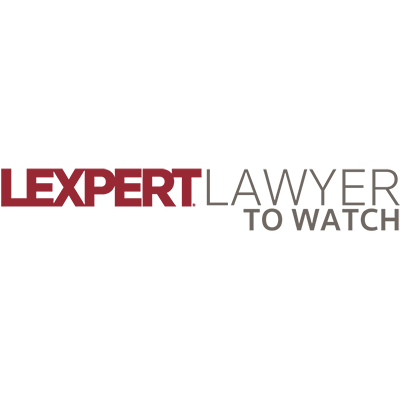BC Proprietary Estoppel Lawyers
Our BC family property division and estate litigation and Will dispute lawyers handle a variety of family and estate dispute claims. The BC Court of Appeal has just released an interesting decision concerning how a promise from a parent, a parent-in-law, or even a stranger may be enforced on equitable grounds. This new decision also highlights how new remedial legislation under section 58 of our Wills and Estates Succession act (“WESA”) laws would likely have led to a different result in court than under BC’s old Wills laws. The BCCA disputed Will decision in Sabey clearly tells lawyers and their clients what the law of BC is on the concept of proprietary estoppel. Will makers should use a skilled lawyer to ensure their wishes are not short-circuited. In the event a dispute arises you should contact us immediately at any of our 4 estate disputes and unfair Will lawyers offices.
When Is A BC Promise Regarding Property Enforceable?
- What would you expect if someone promised you an interest in, or full ownership of, a piece of land if you did certain things?
- What if based on that promise you worked long and hard improving that property. What if you also gave up other job and career opportunities because you relied on the promise that if you worked hard you would get the land?
- What happens if you already received a benefit from the person who made the promise?
- What if, instead of receiving the land, the deceased Will maker leaves you a money bequest worth far less, even though they wrote a defective follow up a codicil to their Will indicating you were to get the whole property?
- What happens to the other beneficiaries in the Will if you get the whole property?
BC Appeals Court Explains BC Proprietary Estoppel
Beginning in 2001, the respondent, Mr. Sabey worked and studied dressage on the von Hopffgartens’ farm and received assurances from the von Hopffgartens that he would eventually inherit the farm. When Ms. von Hopffgarten died in May 2011, her will left the farm to the appellant, Ms. Rommel. At trial, Mr. Sabey was awarded the farm on the basis of proprietary estoppel. The appellant challenges the trial judge’s finding that the test for proprietary estoppel has been met.
Held: Appeal allowed, Justice MacKenzie dissenting. Majority (per Justice Bennett and Justice Neilson): The extent of Mr. Sabey’s detrimental reliance was far less than that assessed by the trial judge. Awarding Mr. Sabey the farm was far out of proportion to the detriment he suffered. The decision of the trial judge is set aside, and the case is remitted to the trial judge to assess the outstanding claims of unjust enrichment and express or implied trust, as well as the issue of proportionality as it relates to proprietary estoppel. Dissent (per Justice MacKenzie): The appeal should be dismissed. Reliance and detriment are largely factual findings attracting a deferential standard. Similarly, determinations of remedy also attract deference. It cannot be said the trial judge failed to apply the relevant principles or gave insufficient weight to the relevant circumstances.
What Is The Test For BC Proprietary Estoppel?
In a 2:1 decision, the BC Court of Appeal reviewed and restated the law for a successful proprietary estoppel claim. In a nutshell, there is no free ride in proprietary estoppel claims. To win you must prove a net detriment after the credits and debits related to the representations that were made.
[28] This statement was referred to by Madam Justice Newbury in her concurring reasons in Trethewey-Edge Dyking District at para. 64. In her view, based on the formulation in Taylors Fashions Ltd. v. Liverpool Trustees Co. Ltd., [1982] 1 Q.B. 133 (Ch. Div.), an equity is established if, first, the defendants by their words or conduct encouraged the plaintiff to believe that they did not intend to rely on their strict legal rights (at para. 70), and second, if, in all the circumstances, it would be unconscionable for the defendants to go back on the assumption they had allowed the plaintiffs to make (at para. 73). If these requirements were met, then the final question; what is the remedy appropriate to satisfy the equity (at para. 75).
[30] Although the test for proprietary estoppel has been framed in many different ways in the case law, it always bears the same essential qualities. In my view, they can be summarized as follows:
- Is an equity established? An equity will be established where:
- There was an assurance or representation, attributable to the owner, that the claimant has or will have some right to the property, and
- The claimant relied on this assurance to his or her detriment so that it would be unconscionable for the owner to go back on that assurance.
- If an equity is established, the court must determine the extent of the equity and the remedy appropriate to satisfy the equity.
[31] This means that Mr. Sabey must demonstrate that the von Hopffgartens assured him that he would inherit the farm, and that he relied on this assurance to his detriment to the extent that it would be unconscionable for him not to receive an interest in the farm. The court must then go on to determine the relief appropriate to satisfy the equity that Mr. Sabey has established.
[42] A similar description was adopted in Ryan v. Moore, 2005 SCC 38. Although this case dealt with estoppel by convention and estoppel by representation, the court’s comments on detrimental reliance apply equally in the case of proprietary estoppel. The court held that the requirement of detrimental reliance lies at the heart of true estoppel (at para. 68). The court provided the following definition:
[69] Detrimental reliance encompasses two distinct, but interrelated, concepts: reliance and detriment. The former requires a finding that the party seeking to establish the estoppel changed his or her course of conduct by acting or abstaining from acting in reliance upon the assumption, thereby altering his or her legal position. If the first step is met, the second requires a finding that, should the other party be allowed to abandon the assumption, detriment will be suffered by the estoppel raiser because of the change from his or her assumed position (see Wilken [Wilken and Villiers: The Law of Waiver, Variation and Estoppel, 2d. ed. (New York: Oxford, 2002)], at p. 228; Grundt v. Great Boulder Proprietary Gold Mines Ltd. (1937), 59 C.L.R. 641 (Austl. H.C.), at p. 674).
[Emphasis added.]
[43] Therefore the question is whether Mr. Sabey altered his position or changed his course of conduct because of the assurance that he would inherit the farm. The trial judge found that he did and addressed reliance and detriment together.
Sabey Never Gave Up Career Options
Ever heard of the phrase “there is no free ride in life?”. The Court of Appeal rejected that Sabey gave up his horse dressage career and also rejected that Sabey chose a local accounting course and job because of the promise he would receive the farm. The Court of Appeal then accepted that unpaid work versus benefits Sabey received could found some compensation. The Court of Appeal majority felt the error was when the trial judge conflated reliance by Sabey on the deceased’s promise of a gift of the farm with an automatic conclusion of detrimental reliance.
[55] This brief analysis in Belvedere suggests two things: first, detriment does not automatically flow from reliance, and second, detriment must be assessed on a holistic basis, with a view to looking at both the overall benefits gained and losses suffered by the claimant.
The majority then analyzed, what if any, detrimental reliance actually occurred as opposed to the trial judge’s error which assumed a detriment merely upon proof of reliance on a promise. They found little detriment and certainly not the level of detrimental reliance that justifies Sabey receiving the entire farm.
….If he had wanted to, he could have taken over the farm at any time and he could have pursued professional riding. But he did not. If he had taken over the farm after Dietrich’s death then he would not have been able to pursue his accounting career. He could not devote himself fully to both. Ultimately, Mr. Sabey did not choose professional dressage or the farm; he chose to expand his accounting career and to ride and teach lessons on the side. The evidence does not support any detriment in terms of career choice, and as indicated, neither were pleaded as detrimental reliance.
Unpaid Or Lower Paid Work By Sabey
[67] Although the evidence regarding the value of the work Mr. Sabey did on the farm is scant, it seems that Mr. Sabey received less compensation than other working students, and later he received no compensation at all. The trial judge also found that the reason Mr. Sabey accepted his lack of compensation was that he expected to inherit the farm. These findings of detrimental reliance in relation to Mr. Sabey’s uncompensated contributions to the farm are clearly supported by the record.
81] It is important to keep in mind that the issue in this case is not the intention of the deceased, but whether a gift in a valid will should be set aside, and in what circumstances.
[82] Mr. Sabey argues unconscionability. In my opinion, it is unconscionable to set aside the gift in the will and give Mr. Sabey the farm given the limited extent of his detriment.
[83] In my respectful opinion, the record and the law do not support the conclusion of the trial judge to award Mr. Sabey the entire farm. Mr. Sabey raised two other bases for his claim: unjust enrichment and express or implied trust. A pleading of secret trust was abandoned at trial. The trial judge did not address these claims given his finding of proprietary estoppel. The case should be returned to the trial judge to assess these claims based on the evidence he heard at trial. The issue of proportionality was not argued before or decided by the trial judge. As this case is remitted for reconsideration on the outstanding issues, it is open to the trial judge to also assess the issue of proportionality based on the trial evidence.
[84] Mr. Sabey received a gift of $100,000 from Kim’s US estate. This gift was not raised in this appeal so I make no comment on its relevance, except to note in Watts & Ready, other gifts were considered in assessing detriment and equity.
[85] I would allow the appeal, set aside the decision of the trial judge and remit the case to the trial judge to assess the outstanding claims of unjust enrichment and express or implied trust, as well as the issue of proportionality as it relates to the claim of proprietary estoppel. I would order costs payable from the estate.
Minority Disagrees and Supports Trial Judge
[122] In my opinion, this case falls within the line of cases in which the detriment cannot be easily quantified, given the complexity of the relationships and motivations of the parties involved, and the benefits they received. In my view, it was appropriate for the judge to have assessed the detriment suffered by Mr. Sabey “in the round”, including a consideration of the context of Mr. Sabey’s relationship with Dietrich and Kim, while looking after their farm. It was open to him to determine Mr. Sabey should be awarded the farm in these circumstances.
[123] The remedy is the result of a broad discretion exercised by the trial judge in the totality of the circumstances as he interpreted them. I cannot conclude the judge “acted on a wrong principle, or failed to give sufficient weight to all relevant considerations”: Parminter v. Parminter, 2011 BCCA 347 at para. 16, 340 D.L.R. (4th) 651, citing Friends of the Oldman River Society v. Canada (Minister of Transport), [1992] 1 S.C.R. 3, 88 D.L.R. (4th) 1; Harelkinv. University of Regina, [1979] 2 S.C.R. 561, 96 D.L.R. (3d) 14; and MiningWatch Canada v. Canada (Fisheries and Oceans), 2010 SCC 2, [2010] 1 S.C.R. 6.
[124] In summary, there is no “benchmark” for unconscionability – the analysis is to be individualized. I see no error in the reasoning of the trial judge. His conclusion was reasonably supported by the evidence.
Our WESA dispute, proprietary estoppel, and trust claim and unfair Will Variation lawyers can help you obtain a fair estate dispute resolution. Call us toll-free at 1-877-602-9900.











